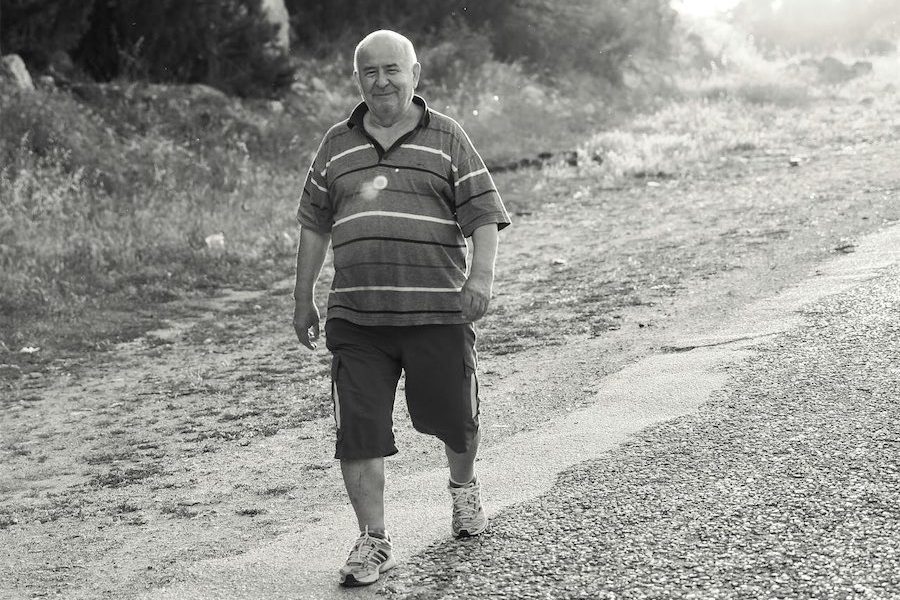
FRANK BURES discovers a radical way of surviving in the information age – spending a day a week offline!
ABOUT a year ago, I made a radical pledge. It came after several years of feeling less and less able to deal with the tidal wave of information coming at me: 3.6 zettabytes annually, which amounts to 100,000 words each day.
That’s a 350 per cent increase over people’s exposure in 1980.
I was drowning in data. So, like an electronic-age Dutch boy, I put my finger in the dyke. Each Monday, I resolved, I would spend the entire day offline.
I didn’t make this decision lightly. As a writer, I depend on the internet to find information, to communicate with friends and colleagues, and to refill the well of knowledge and ideas.
Yet the costs of constant access were becoming impossible to ignore. Sometimes I would go online to find one thing, then spend an hour or two reading about other interesting things, while completely forgetting what I had originally been looking for. I couldn’t focus. I couldn’t keep my thoughts straight.
Sometimes I felt like I was losing my mind.
I was – I am – sane. But my brain – as “Future Shock” author Alvin Toffler wrote 40 years ago – was being forced to process information at a much higher volume than it is equipped to handle.
“What consequences this [cognitive overstimulation] may have for mental health in the echno-societies,” Toffler wrote ominously, “has yet to be determined.”
Living in the future that Toffler envisioned, I was starting to get a read on those consequences: The gnawing unease, the accelerating slide down a scree slope of trivia, the feeling that my mind was a balloon with a million tiny holes. Every time I turned on my computer, it was akin to opening a floodgate, when all I wanted was to sit and focus, taking in information clearly and steadily – like a drink from a cool mountain stream.
I now know I am not alone. We are finding out that our brains did not evolve to be bombarded with ceaseless novelty and stimuli. Multi-tasking is not the wave of the future.
Scientists are starting to uncover the fallout. They are learning, for example, that those who attempt to perform two different tasks simultaneously end up doing neither task well, and that multi-tasking “prevents people from getting a deeper understanding of information,” in the words of one researcher. One study shows a 10-point drop in IQ scores after constant distractions from e-mail, text messaging, and cell phones.
Some evidence also suggests that the perpetual navigation and endless choices that come with being online contribute to something called “ego depletion”, or the running down of our willpower. That would explain why I often emerged lethargic, unsatisfied, and oddly exhausted after a day of sitting at my desk, trying to decide which way to steer my digital rudder.
At the same time, researchers are finding that idleness, even daydreaming, is essential for the brain to process new information and integrate it into long-term memory, storing it where we can actually use it.
The first Monday of my new life came around. I turned on my out-of-office response for my e-mail. I set a program I’d found called SelfControl, which lets you lock yourself out of specific websites and e-mail servers, for eight hours.
I took a breath. I hit start. There is a scene in “2001: A Space Odyssey” in which one of the astronauts is flying out into the void of space, trying to reinsert his air tube. That’s how it felt to me. Strange. Cold. Alone. Quiet. It was like finding myself on the moon, staring back at earth. I knew there was a lot going on down there. I knew there was a great party I was missing.
I longed to rejoin the digital throng. I knew there was some deathly important e-mail that needed addressing. I was sure someone would call, wondering why I hadn’t responded.
No one did. I sat down and finished a few small projects I’d been putting off. I thought through my week and made a list of things that needed to be done. I wrote e-mails to send later. I jotted down things to look up. I organised some research. I enjoyed the sense of having some space in my head where there was room for new ideas.
I even had time to sit down and read a book.
By the end of the day, I felt something that I hadn’t in a long time: A sense of accomplishment. And when I finally logged on to see what I had missed, I was surprised by the answer: Not much.
I began the next day refreshed. I whipped through my e-mails and got on with things, a little more in control.
The rest of the week had a linear coherence I hadn’t even realised I’d missed. I was starting to get my mind back.
The next week, my day offline was easier, and the week after that easier still. I tried not to be dogmatic about it.
Sometimes I would check my e-mail midday. Sometimes I would be offline Tuesday instead of Monday. But the principle was the same: At least one full day unplugged.
As time went on, I noticed my anxiety level going down, my energy coming up, my focus returning, and the false sense of urgency that the internet seems to foster disappearing. If the internet does change your brain, the good news is that you can still change it back.
Now I spend part of every day – and sometimes several days at a time – offline. SelfControl the program has been gradually supplemented by self-control the actual skill. I have started to understand that I can function efficiently in the information age after all.
And when I see the tidal wave coming at me, instead of letting it wash over me, swamping my little boat, I think I’ve found a way to keep my hand on the tiller and enjoy the ride.
This article first appeared as “The Rotarian” column in “The District Chronicle”, the local newsletter of Rotary’s District 9710.
Frank Bures is a Minneapolis-based writer whose work has appeared in “Harper’s”, “Esquire”, and the “Los Angeles Times”.
Who can be trusted?
In a world of spin and confusion, there’s never been a more important time to support independent journalism in Canberra.
If you trust our work online and want to enforce the power of independent voices, I invite you to make a small contribution.
Every dollar of support is invested back into our journalism to help keep citynews.com.au strong and free.
Thank you,
Ian Meikle, editor




Leave a Reply